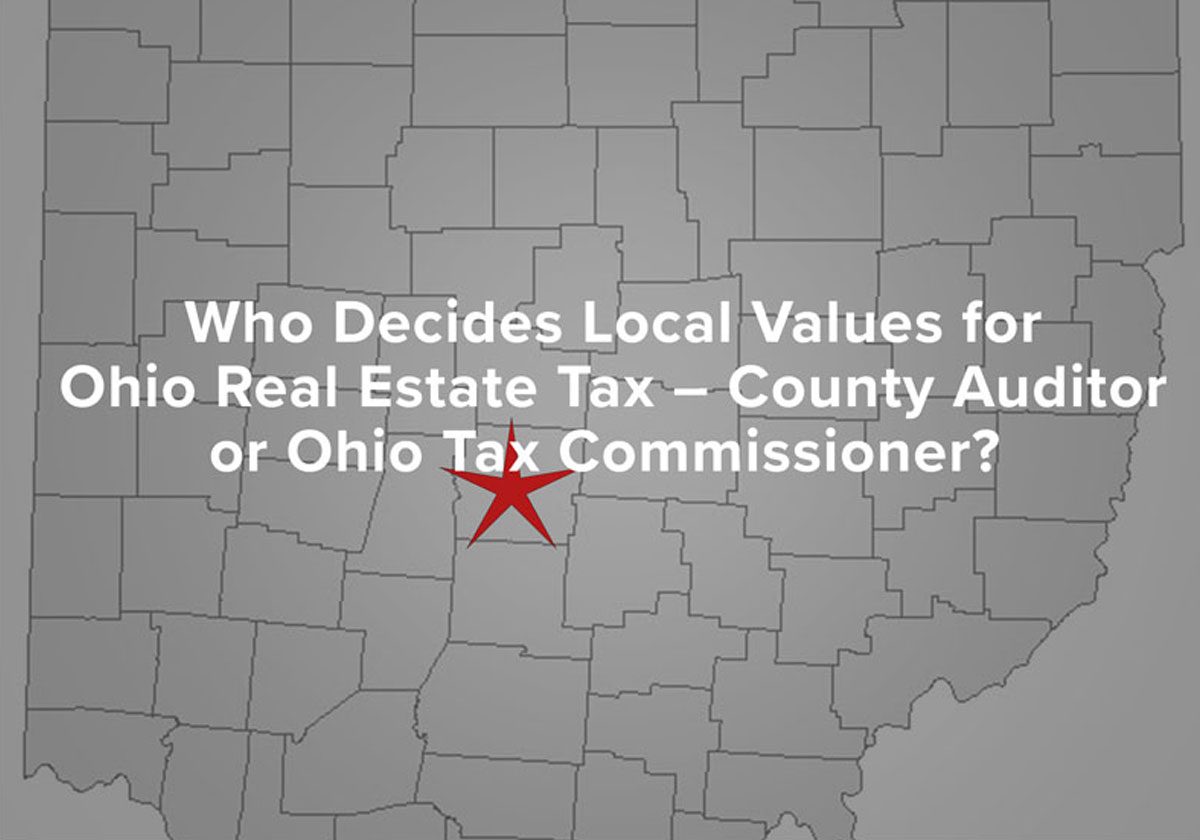UPDATE (November 7, 2022): Ohio Board of Tax Appeals Decides in Favor of Ohio Tax Commissioner Jeffrey McClain
On September 14, 2022, the Board issued its decision, deciding in favor of the Tax Commissioner. Citing Brown v. Tracy, BTA No. 92-D-1213 (Nov. 12, 1993), the Board used a “reasonable and lawful” standard of review and also recognized that, referring to the sales-assessment ratio studies used by the Commissioner in making his determination that certain aggregate increases were necessary, “the Commissioner has wide discretion in the creation and use of his studies.” While the Auditor had argued that the Commissioner’s primary weighting of the 2019 (i.e., the most recent) tax year was methodologically flawed, the Board found that the Auditor had not met his burden of proof in establishing any flaw. Rather, “the Commissioner’s emphasis on more recent sales is not only supported by Ohio Adm Code 5703-25-16(A)(2), but it comports with standard appraisal practice and existing real property valuation law.” Further, the Board found the Commissioner’s studies were supported by reliable and probative evidence in the statutory transcript.
Because the Commissioner’s sales ratio studies were reasonably and lawfully created and utilized, the Board found that the Commissioner’s argument for aggregate increases in value was supported by reliable and probative evidence. In this case, the centralized power of the Ohio Tax Commissioner, having been reasonably and lawfully used, prevailed over a challenge brought by the Butler County Auditor.
Original Buzz
A recent hearing at the Ohio Board of Tax Appeals (“Board”) pitted the Butler County Auditor, Roger Reynolds, against Ohio Tax Commissioner Jeffrey McClain. In 2020, Reynolds asked to delay the mandated sexennial reassessment due to the effects of the pandemic on property values and on impacted property owners’ ability to pay the annual levy. When the request for a delay was denied, the Auditor proposed an aggregate 13% value increase, considerably less than the 20% increase mandated by the Commissioner. After receiving a notice from the Commissioner listing seven geographic areas the Commissioner deemed to be underassessed, the Auditor made revisions to the proposed assessments for three of those areas, bringing his reassessments up to an aggregate 14.5% increase. The Commissioner ordered the remaining areas to be increased, and the appeal ensued, leading to the October 13 hearing.
The Auditor argues that his staff has the skills necessary to perform accurate assessments and spends considerable time doing so. He alleges that they are also more familiar with the local conditions in Butler County, making them better placed to perform accurate assessments. He also argues that his staff’s valuations were in fact reasonable, while the Commissioner’s values were too high. The Auditor’s values were based on sales ratio data for the most recent three years, with distressed sales weeded out from the true arm’s length property sales. The Auditor’s Notice of Appeal claims he used a “middle ground” that “acknowledges an upward trending market by not favoring 2017 sales” while it also “hedges against an out-of-balance inflationary runaway market by not placing too much weight on the 2019 sales.” The Commissioner, in the Auditor’s opinion, is being misled by unrealistic projections of increased values in Butler County over the next few years.
While the Ohio Revised Code (“R.C.”) does provide for assessments to be made at the county level, R.C. 5713.01, it also provides for centralized oversight from the Ohio Department of Taxation, R.C. 5715.01(A). Additionally, the Ohio Constitution, Article XII, Section 2, provides that “Land and improvements thereon shall be taxed by uniform rule according to value,” the so-called “uniformity clause” for real property taxation. In this case, the Commissioner is standing by his order that the four remaining geographical areas be reassessed to reflect higher aggregate increases in true value.
It is the Tax Commissioner’s duty to oversee the assessment process, though that process must be performed by the county auditors and their staffs. The law, predicting that the local and centralized authorities would sometimes disagree, provides for appeals such as the one brought by Mr. Reynolds, at R.C. 5715.251. Real property valuation disputes are an example of the tensions that exist in Ohio between the state and local levels, pitting local expertise against the need for uniformity and some degree of centralized control. It will be up to the Board to determine who prevails in this dispute between Butler County and the Ohio Tax Commissioner.
If you have any questions regarding property valuations or appeals, please contact Steve Hall or any other ZHF professional.


